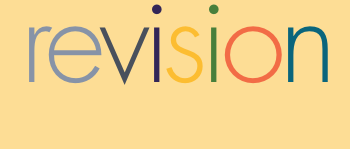I am a writer. I write — and up until last year, I absolutely, under no circumstances, did not re-write. There was always an excuse: I never had the time, the effort, or the drive to go back and revise what I already considered finished. I have followed this not-so-terrible habit for most of my academic life, throwing together class papers without so much as a second glance. My writing process was simple: I outlined my paper, wrote it, and never looked back. Feedback from my teachers and professors was nearly always positive, with the occasional criticism or comment thrown in for good measure, and I never thought twice about continuing my approach.
The problem was, I felt like a fraud. Friends and classmates alike often sought me out during their writing crises, asking me to edit their essays and proofread their papers. I was always happy to oblige, and with red pen in hand, I read their work looking for things to fix: common grammar mistakes, organizational issues, fragmented sentences…this continued for quite some time, until I began double-checking their papers for rhetorical strategies, sound arguments, and clarity. Time and time again I would improve the work of my peers, but not my own. I rarely, if ever, even read my work after it was finished. I was a sham. A hypocrite, a walking contradiction. Here I was, instilling the notion of revision to others, when I would never in a million years (or a few dozen classes) do the same!
During a particularly challenging course last year, I cracked. The first paper assignment had come and gone, and, after hastily throwing together a few pages the night before it had been due, I wasn’t shocked to discover I had received a low grade. I read through the professor’s comments, and dismissed them angrily, worrying about how this would affect my grade, my pride, and my credibility as a writer. After class, I sat down and calmly looked over the criticism again. I was shocked — a number of the concerns dealt with issues I regularly pointed out to my peers: structural problems, not enough support for my main premise…etc. I realized that I couldn’t fool myself any longer. If I wanted to truly call myself a writer, I had to take that next step after “finishing” my writing.
A few weeks after my realization, I was assigned another paper for the aforementioned class. I went about business as usual, brainstorming ideas, creating a rough outline, and typing away for the next few hours until I was done — or so I thought. Even though I considered my work to be finished, I went back to the first of many written pages and began skimming for local errors, changing a phrase or two every few sentences, and hesitantly decided to call it a day. My friend commented on the fact that while I had spent nearly an hour on his three page rhetorical analysis, it took me only fifteen minutes to “thoroughly” revise my ten page paper. Feeling slightly ashamed of myself, I tried a different method. I printed out what I then considered my work of art, and decided to look at my paper objectively: I began to look at the paper as if it were a complete and total stranger’s — and I was surprised at what I found.
I discovered that I had completely missed a portion of my argument, along with detailed examples in every paragraph (one of the prompt’s caveats) and adequate transitions. I had misspelled words, bypassed definitions, and lost focus near the end of my paper. My concluding arguments needed some work, my thesis could be clarified…after spending an additional two hours I looked back on my changes and realized I had not simply modified my paper, but finalized it.
I am still wary towards the art of revision, but I can understand it’s positive effects. I no longer consider it a burden, a chore, or an overwhelming waste of time. Rather, I look at it as a continuation of my writing, another step in the process, and most importantly, a strategy that encourages better writing.
Discover more from UCWbLing
Subscribe to get the latest posts sent to your email.

